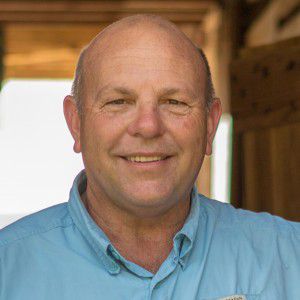Farm Bureau in Your Corner in Court, Again
Author
Published
2/26/2023
A couple weeks ago, AFBF filed a new lawsuit challenging EPA’s latest WOTUS rule—joined by more than a dozen other organizations representing agriculture, infrastructure, manufacturing and housing. Why? Because even though farmers and ranchers share the goal of protecting our nation’s waterways, they deserve better than this rule. They deserve better than a rule that requires a team of lawyers and consultants just to identify “navigable waters” on their land.
Of course, we would much rather sort out differences by coming together to find solutions. That’s what we tried to do when EPA announced its plans to issue a new WOTUS Rule. Farm Bureau leaders and grassroots members came to the table, joining EPA roundtable hearings, and I had conversations directly with EPA Administrator Regan. But despite some helpful clarifications coming from those discussions, the new rule is still unworkable for America’s farm families. Most important, EPA has doubled down on the old “significant nexus” test, which is every bit as vague as it sounds—not a useful standard for identifying “navigable waters.”
We don’t set out for the courthouse. But sometimes we have to go there. In fact, WOTUS is a prime example of why AFBF advocacy must extend beyond Capitol Hill and federal agencies—into the courts. Several WOTUS cases over the last several years show how litigation is an essential part of advancing Farm Bureau’s mission and your mission to fill America’s pantries.
Back in 2015, EPA replaced a decades-old, terribly flawed WOTUS rule with a new one that was even worse. The 2015 WOTUS Rule was an enormous federal land grab that would prohibit many commonplace, beneficial farming activities. AFBF and an industry coalition, along with many state and county governments, challenged that rule in court—and we won. Courts blocked the 2015 Rule in 28 states.
Our litigation wins against the 2015 Rule helped persuade the EPA, under a new administration, to replace it with a more clear, workable WOTUS Rule in 2020. But activists challenged the 2020 Rule in court. So AFBF again led a litigation effort—this time on defense—defending the reasonable rule we had advocated for. AFBF successfully defended the 2020 Rule in each of the six cases we were involved with. Our legal efforts helped keep the rule in place for almost three years and, importantly, provided support for a similar rule in the future. But the legal battle was cut short after another change in administration.
This brings us to the present: another administration, another WOTUS Rule, and another round of litigation. Not where we wanted to be, but where we need to be under the circumstances. In our system of checks and balances, the courts are an indispensable check on unlawful agency actions. Litigation is slow, cumbersome, expensive, and often uncertain. But it’s a tool we can use, and a weapon we must guard against, as we work for laws that protect your ability to farm. We’ll continue to be in your corner in every forum where issues vital to farmers and ranchers are decided, including the courts.
Zippy Duvall
President, American Farm Bureau Federation

Want more news on this topic? Farm Bureau members may subscribe for a free email news service, featuring the farm and rural topics that interest them most!
